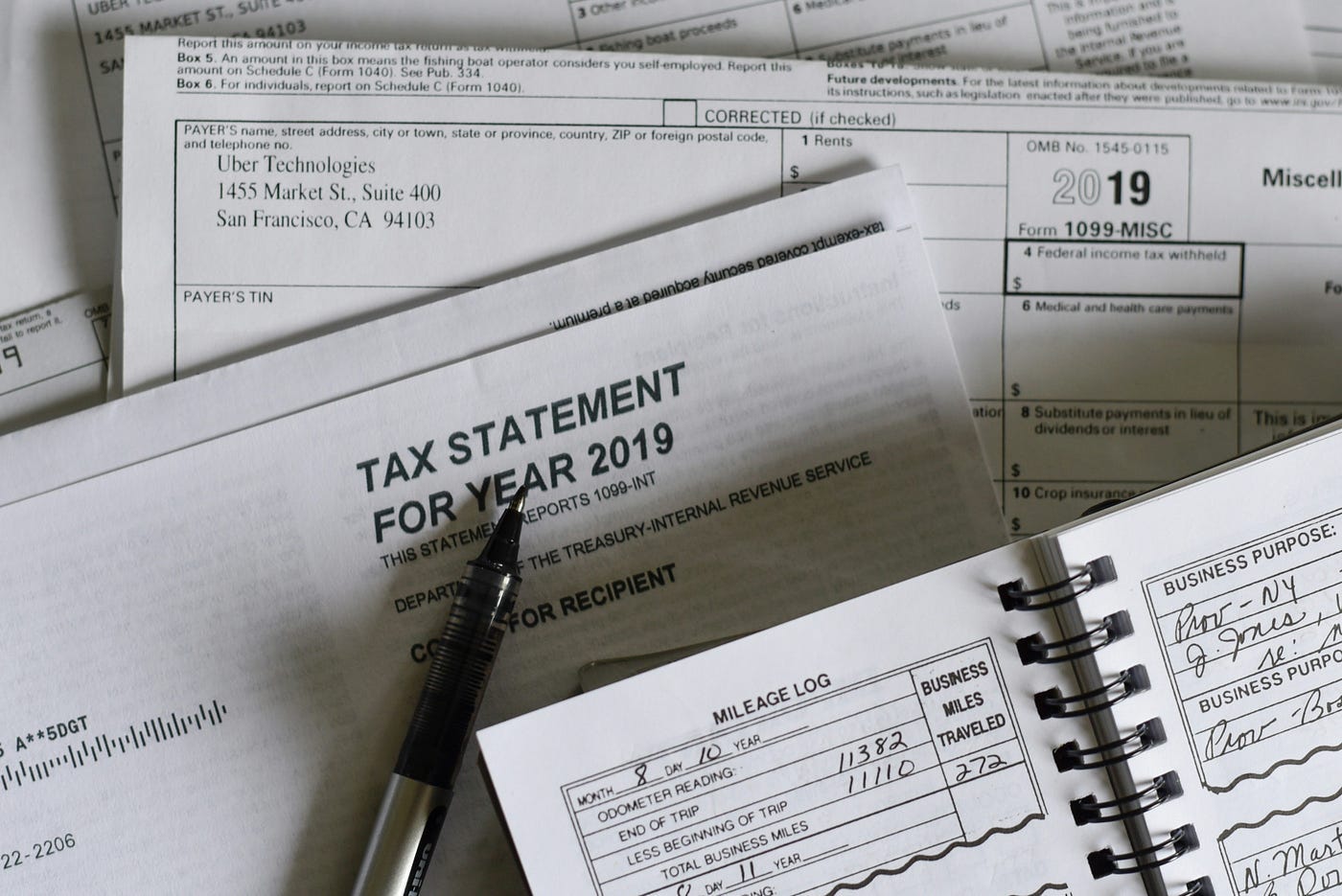10 Things Every Budding Entrepreneur Should Know
When I first started out freelancing, I assumed things would be easier. It was not easier. This is what I wish I knew.

Oba’s post today comes from one of our contributors, Ossiana Tepfenhart, over at Ragged Riches: Money for Outsiders. Go check them out!
When I first started out freelancing as a model and writer, I assumed things would be easier. It was easy-ish to find gigs. It’s simple enough to get started as long as you know the right sites for your industry.
It was not easier.
Business and entrepreneurialism has such a crazy learning curve, no one seems to really talk about it. When you first start out, you will hit hard bumps on the way. These are the warnings I wish I got when I first started.

1. You need to learn to do taxes and plan for them.
I’m still struggling with this. I wish someone sat me down and told me a little bit about tax law. I wish I learned this when I was still in my 20s. I’d find myself blindsided, overtaxed, and overwhelmed.
This is admittedly still a hole I’m digging myself out of. Don’t be me. Talk to a tax professional or just get some bookkeeping software. You’ll be glad you did.
2. You will hate your career and business sometimes.
People always say that if you work doing what you love, you’ll never work a day in your life. This is completely and utterly untrue. Period. End of sentence.
Even the most passionate professionals will have days where they want to cry looking at their work. They will have moments where they will tear their hair out with anger, throw up their hands, and say, “I can’t do this anymore!”
The key thing here is to choose a business that:
Doesn’t make you want to die or kill someone most of the time.
Pays you well enough to live a good life.
Is something you can do day in, day out.
Won’t get you arrested.
Choose wisely. Because there will be days that you hate it with a burning passion.
3. People will not believe in you, even when you are fairly established.
Most people will roll their eyes at you when you start off. The key is to find the people who will believe in you or give you a try. As you gain traction, more people will believe in you.
There will still be people who will not want anything to do with you no matter how long you’re in business. In many cases, the people who will believe in you the least are going to be your friends and family.
Try to give them patience and grace. It’s hard to imagine the kid who pranks Mom as a major Fortune 500 company founder! If they are particularly cruel about their remarks on your business, you might want to consider if their influence is holding you back. If so, you need to start setting some boundaries.

4. The good times don’t always last, so prepare in advance.
Every business will have an ebb and flow. I learned this the hard way. My Medium account was booming one second. The next? Well, I saw my earnings plummet through the floor. To make matters worse, I couldn’t find any clients in time.
I wish I realized that business isn’t stable all the time. If you are a business owner, you need to save money and live below your means. You need to have a stockpile of at least a year’s income once you get established. It could make or break your finances.
5. You will see the best and worst in humanity as a business owner.
I recently heard about a pizza shop that was opened solely through the assistance of the community — including a donated pizza oven! This has been the near polar opposite of what I experienced running my own business as a writer.
Everything you see here? I funded it. I’ve begged everyone and their grandma to invest in me. At the end of the day, it’s made me both jaded and hopeful that I could give others the opportunities I didn’t get.

6. Speaking of investors, they are a mixed bag.
Everyone wants to have an investor in their business, but I’ll be honest, it’s not always the dream you want it to be. The vast majority of investors will not allow you to spend their money willy-nilly, and rightfully so.
I mean, it’s their money, right?
The problem here is pretty easy to spot, right? If not, I’ll clue you in: most investors think they know your potential industry better than you do, even if you have decades of experience in it. They will now have a say in your business.
This can be a good thing, if they actually do understand your business. It can also be a great way to tank your business if it turns out to be a proverbial “deal with the devil.”
There’s also the issue of returns. Investors can be a poison pill because they will continue to ask for returns year after year. The only way to get those returns is to increase profits and expansion year after year.
Businesses cannot continue expansion into monopoly level and beyond. Not every company is Amazon. Sometimes, the magic of a company is not making it a franchise, but a unique experience you have to seek out.
Investors don’t care about that. They also don’t care about the impact your business could have on a local community if it gets too big (example: real estate). They just want profit to go up and they will get pissed if it doesn’t.
Accept investors at your own risk. You might not like what they turn your company into.
7. Being your own boss is not easy.
Contrary to popular belief, being your own boss is not something everyone can do. Everyone doesn’t have the power to get up in the morning, plan out their day, make to-do lists, track everything, and then do it all.
With that said, some folks were ready to get up and go the moment they were born. If you are the person who needs someone to check in on you and then tell you to get your butt into gear, entrepreneurialism is not for you.
Most of the time, the best entrepreneurs I’ve seen are the ones who typically don’t play well with people who tell them what to do. They do their own thing, all day, every day.
That vibe is not new. John D. Rockefeller once said:
“I would rather be my own tyrant than have some one else tyrannize me.”
That’s the attitude you need to succeed.

8. Most of the people around you will see you as a paycheck or a product, not a person.
It’s easy to give a snarky laugh and say, “Welcome to being a man,” but it’s really not the same thing. When you’re working for someone else, your coworkers see you as a person. Your partner should (ideally) see you as a person.
When you’re a business owner, your entire team sees you as a paycheck. Your accountant sees you as a paycheck. The IRS sees you as a paycheck. Businesses you use to advertise see you as a paycheck. Scam artists see you as a paycheck.
Even your social dynamics change. A lot of the friends I had when I was wealthier stopped being friends when the chips were down. It’s actually really disheartening and I ended up becoming more of a recluse as a result.
This is not an isolated event. It’s actually really common, the wealthier you get.

9. People won’t take your time as seriously.
For some reason, people genuinely don’t think that being an entrepreneur means you can be busy. If you tell them you have a deadline, they’ll blink and say, “But you can do it later, right?”
Or, you’ll get the classic, “You make your own schedule. You gotta have at least a minute for me,” followed up by a remark about how you’re never around anymore.
Distractions are everywhere when you’re working as a solopreneur or an entrepreneur. It’s a nightmare. You will need to learn how to say no.
10. The risk of failure is always there.
I’ll be honest. It’s not easy. According to a study by Exploding Topics, 90 percent of startups fail. 75 percent of all businesses will fold within 15 years. After 20, you’re considered to be a major establishment — even among veterans.
As a person who has watched their writing career on Substack rise and fold, here’s what I suggest you do: diversify your businesses. You never know which endeavor will blossom and which will tank.
But then again, what would I know? I’m just 12 years into writing, modeling, and content creation.
As a creative entrepreneur, you get to make your own rules as you learn from your own experiences. Do you relate to any of these lessons? Any others you have had to learn the hard way? Share them with the community of freelancers like yourself at Oba’s Facebook page!


